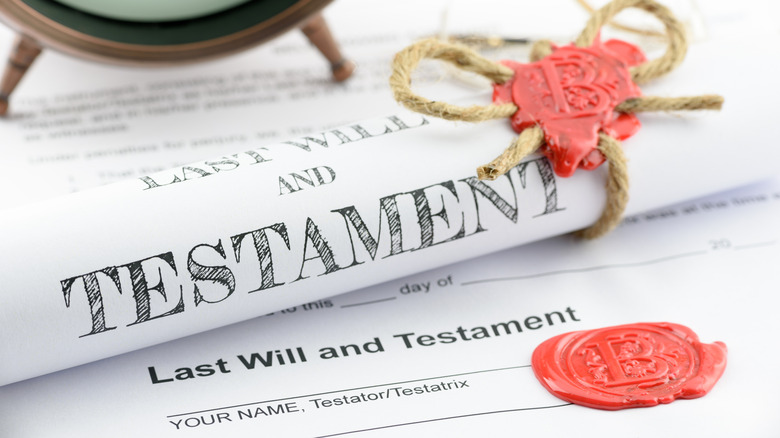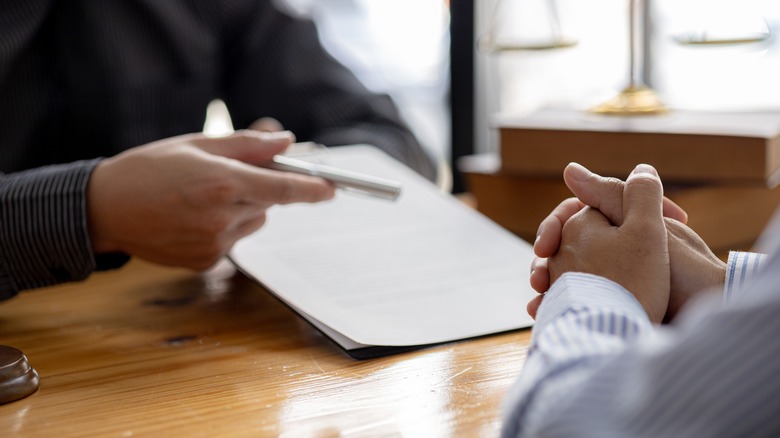Here's How You Prepare To Act As The Executor Of A Will
There may come a time in your life when a friend or loved one could ask you to handle their affairs when they pass away. This important job means that you would be an executor of their will, and it comes with a lot of responsibility. To take on this role means that you're the person who acts to carry out what is stipulated in the will by the testator. An executor is oftentimes a family member or a friend, someone who is close to the testator and can be trusted to follow the wishes of the will and perform the necessary steps to properly go through the process.
Appointing an executor is an important decision and a necessary one at that. If someone goes through what it takes to write up a will and doesn't take the time to have an executor named to the will or estate, then that decision would be left up to the court. Upon the individual's death, the court would then appoint someone to act in this role which may not line up with the wishes of the deceased. That's why both acting as executor and appointment of the right executor are crucial when creating a last will and testament. Now, let's break down all of the responsibilities that are involved in the role of the executor of a will.
Role of an executor to a will
If you're in a situation where you're being asked to become an executor of a will, you might want to know all the steps that are involved in the whole process before making a commitment. More than just a ceremonial position, as executor, you'll need to not only go through the will with a legal representative and carry out the wishes of the recently deceased, but complete plenty of other important steps along the way.
Although it's not by any means a full-time job, it'll still require you to handle a number of tasks, such as gathering and organizing important documents like the will and any documentation on assets (like real estate), as well as financial records. The role would also include obtaining a death certificate and making official copies for institutions that would require it, organizing arrangements with regard to the funeral, and possibly starting the process of probate for the will if need be.
Other crucial items to care for that fall under the role of the executor would be to cancel accounts and let certain organizations know of the person's passing. You may have to pay off any remaining debts and put a stop to hydro and utilities that would be under their name. The government will also need to know of their death so that any payment regarding social insurance can be stopped as well as interests involving the Internal Revenue Service.
What you need as an executor in the early stages
If you have accepted the role of executor, there are a few things you can do ahead of time to prepare to make sure you're not scrambling for information when the time comes. For example, you should have a list of all of the accounts that the testator has and any passwords that could be associated with them. This could mean anything from phone companies, insurance, bank accounts, credit cards, and so forth. These can be placed in a safe along with the will to make sure they're organized together. Also obtain passwords to their phones, computers, and any other online accounts, just in case you need access when closing out their various services.
You will also need to take inventory of all of the testator's various tax documents, stock portfolios, and investments, as well as any and all contact information of their lawyer, accountant, and, of course, family members. As executor, you'll also be responsible for getting into contact with the family in order to arrange the distribution of funds or properties involved with the wishes of the will. Depending on the stipulations in the will regarding what members are receiving, this could put you in some stressful situations if said members are not pleased with the outcome. It's important for you to take care of yourself and utilize the help of an attorney if there's contention during the process.


